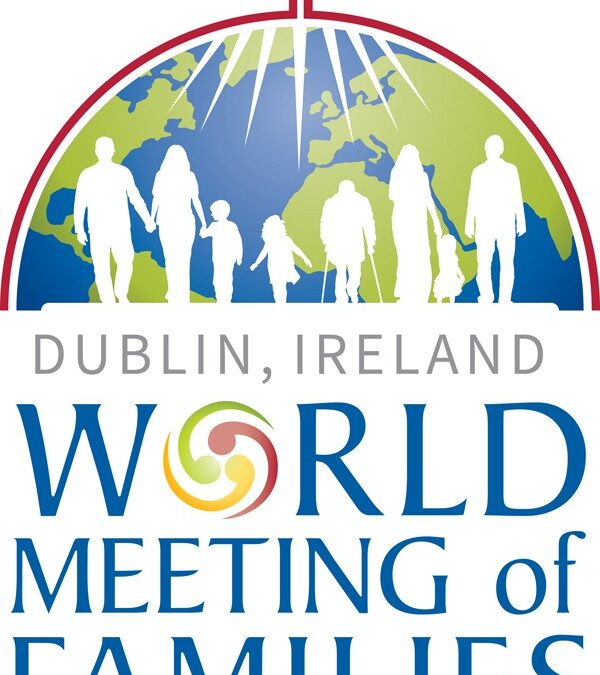
2 Aug 2018 | Focolare Worldwide
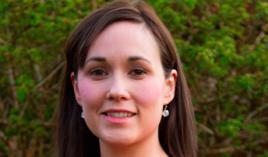
Brenda Drumm
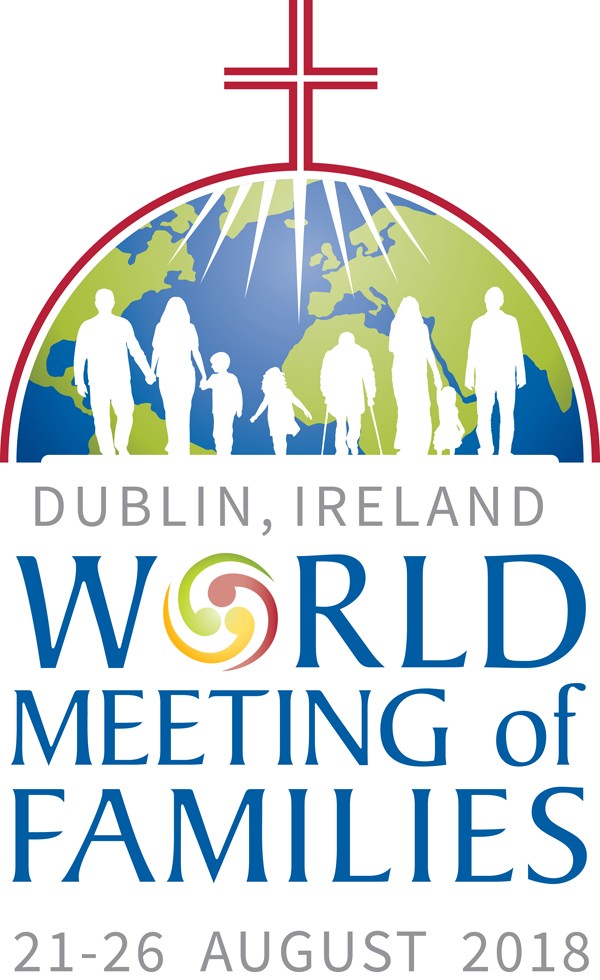 Repeated every three years, the event, which is promoted by the Holy See’s Secretariat for the Laity, the Family and Life, brings together families from around the world to celebrate, pray and reflect together on the importance of marriage as the foundation of personal life, of society and of the Church. The meeting will continue after the official inauguration on 21 August, with a three-day conference in which there will be diversified programs for young people and adults, with entertainment for children, all culminating in sharing experiences of faith in the presence of the Pope. Most of the events will take place in Dublin while other related events will be held in other parts of Ireland. The numbers are flattering, says Drumm: “People’s response has been overwhelming. All the tickets for the scheduled events have already been booked for a long time: 37,000 for the pastoral congress, 77,000 for the Festival of families, 45,000 for the visit to Our Lady of Knock, 500,000 for the closing Mass. Numbers from which interesting data can be derived: families from 116 countries will arrive in Ireland, for a total of about 15,000 international participants; thousands of families will converge on Dublin from all over the country. Approximately 6,000 young people under the age of 18, and 10,000 volunteers committed to ensure the success of the Meeting. But behind the figures are the people: families from all over the world who will gather to celebrate their joys and to discuss some of the many challenges they are facing faced in a rapidly changing world.” And she continues: “Pope Francis is able to grasp perfectly the reality of family life today, with the difficulties of every day. He understands that as parents we do our best for each other each day, and for our children. He also understands that families are not perfect.” What is the family for Pope Francis? Drumm recalls: “The nearby hospital, the first school for the children, the best home for the elderly.” And if “at times dishes can fly,” the Pope reminds us “how happier our family life would be if we only understood the importance of the words ‘please,’ ‘thank you,’ and ‘excuse me.’ The Pope remains passionately convinced that the family will continue to be ‘good news’ for the world. He believes that in the often complex and disordinate life of the modern family, the grace and the love of Jesus Christ are alive in a galaxy of daily acts of kindness, tenderness, generosity and fidelity often lived out heroically amidst immense human frailty and overwhelming social challenges. In a society that is easily inclinded toward violence, the family continues to hold us to hold our lives together, along with the world itself.”
Repeated every three years, the event, which is promoted by the Holy See’s Secretariat for the Laity, the Family and Life, brings together families from around the world to celebrate, pray and reflect together on the importance of marriage as the foundation of personal life, of society and of the Church. The meeting will continue after the official inauguration on 21 August, with a three-day conference in which there will be diversified programs for young people and adults, with entertainment for children, all culminating in sharing experiences of faith in the presence of the Pope. Most of the events will take place in Dublin while other related events will be held in other parts of Ireland. The numbers are flattering, says Drumm: “People’s response has been overwhelming. All the tickets for the scheduled events have already been booked for a long time: 37,000 for the pastoral congress, 77,000 for the Festival of families, 45,000 for the visit to Our Lady of Knock, 500,000 for the closing Mass. Numbers from which interesting data can be derived: families from 116 countries will arrive in Ireland, for a total of about 15,000 international participants; thousands of families will converge on Dublin from all over the country. Approximately 6,000 young people under the age of 18, and 10,000 volunteers committed to ensure the success of the Meeting. But behind the figures are the people: families from all over the world who will gather to celebrate their joys and to discuss some of the many challenges they are facing faced in a rapidly changing world.” And she continues: “Pope Francis is able to grasp perfectly the reality of family life today, with the difficulties of every day. He understands that as parents we do our best for each other each day, and for our children. He also understands that families are not perfect.” What is the family for Pope Francis? Drumm recalls: “The nearby hospital, the first school for the children, the best home for the elderly.” And if “at times dishes can fly,” the Pope reminds us “how happier our family life would be if we only understood the importance of the words ‘please,’ ‘thank you,’ and ‘excuse me.’ The Pope remains passionately convinced that the family will continue to be ‘good news’ for the world. He believes that in the often complex and disordinate life of the modern family, the grace and the love of Jesus Christ are alive in a galaxy of daily acts of kindness, tenderness, generosity and fidelity often lived out heroically amidst immense human frailty and overwhelming social challenges. In a society that is easily inclinded toward violence, the family continues to hold us to hold our lives together, along with the world itself.”
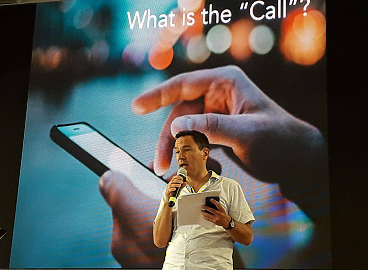
30 Jul 2018 | Focolare Worldwide
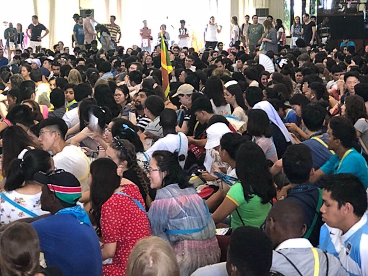 “What shall I do in life?” one of the seven workshops held following the Genfest, focused on the theme of the choices in life, that is, one’s own “Life direction.” As the organizers recounted, “the construction of this workshop by adults and a group of young people from various parts of the world began last February, with meetings via Skype: a really edifying experience assumed by all with commitment, responsibility and creativity.” “Upon arriving in Tagaytay and getting to know each other personally, we realised the great expectations of everyone. Also the numbers expected at the workshop were high: out of the 1,000 enrollees in the seven workshops, 250 had chosen Life Direction, and came from various countries, speaking 16 languages.” The program, guided in a light and gradual manner towards ever deeper issues in which concrete experiences were the main factor, was prepared by the youths of the Asian town themselves, and the thread focused on a “daily motto: a thought to put into practice during the day.
“What shall I do in life?” one of the seven workshops held following the Genfest, focused on the theme of the choices in life, that is, one’s own “Life direction.” As the organizers recounted, “the construction of this workshop by adults and a group of young people from various parts of the world began last February, with meetings via Skype: a really edifying experience assumed by all with commitment, responsibility and creativity.” “Upon arriving in Tagaytay and getting to know each other personally, we realised the great expectations of everyone. Also the numbers expected at the workshop were high: out of the 1,000 enrollees in the seven workshops, 250 had chosen Life Direction, and came from various countries, speaking 16 languages.” The program, guided in a light and gradual manner towards ever deeper issues in which concrete experiences were the main factor, was prepared by the youths of the Asian town themselves, and the thread focused on a “daily motto: a thought to put into practice during the day. 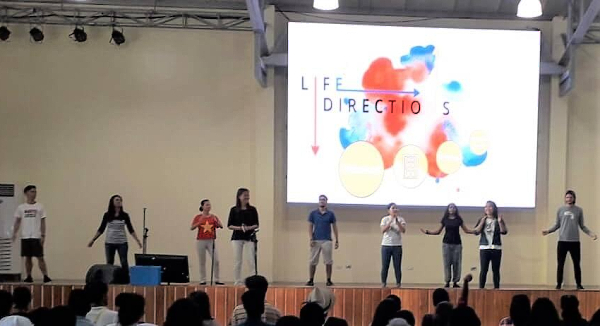 “The first day opened with “Open your heart”: an invitation to open one’s heart to true happiness, trying to remove what could be an impediment in living the present moment intensely. Four experiences were presented in various situations and methods on the theme of happiness discovered thanks to concrete love, or discovered after starting again after a fall, or in painful and difficult situations. The exchange sessions in small groups verified what lay in the depths and how many questions and expectations each one had inside.” “On the second day – they continued – the motto was ’What is the call’ which required our most active participation in presenting the sense of the ’calling’ with a comprehensible language to be able to be accepted, and associated to three key words: understand, listen, choose.” Then followed the story with God in five biblical personages: Samuel, the rich young man, the prodigal son, Mary, and Peter. A married couple, a religious, a woman committed in the professional world, and a focolarina were interviewed on the three key words. “In smaller groups we managed to deepen the sense of each of these callings, interacting with questions and answers.”
“The first day opened with “Open your heart”: an invitation to open one’s heart to true happiness, trying to remove what could be an impediment in living the present moment intensely. Four experiences were presented in various situations and methods on the theme of happiness discovered thanks to concrete love, or discovered after starting again after a fall, or in painful and difficult situations. The exchange sessions in small groups verified what lay in the depths and how many questions and expectations each one had inside.” “On the second day – they continued – the motto was ’What is the call’ which required our most active participation in presenting the sense of the ’calling’ with a comprehensible language to be able to be accepted, and associated to three key words: understand, listen, choose.” Then followed the story with God in five biblical personages: Samuel, the rich young man, the prodigal son, Mary, and Peter. A married couple, a religious, a woman committed in the professional world, and a focolarina were interviewed on the three key words. “In smaller groups we managed to deepen the sense of each of these callings, interacting with questions and answers.”  “The third day’s motto was: ’Aim high.’ We left the word of Chiara Lubich who in 2002 recounted her calling to the youths in Barcelona. The questions, which were written, slowly filled the question box, and were the afternoon’s programme, with other interviews of our guests: each underlined the beauty of their own vocation in the perspective of the sole calling to love. The hour and a half passed swiftly!” “In these four days – the adults wrote – we saw youths who were thirsting for a relationship with God, in a profound quest, simplicity and serenity. We felt that something new had come about: an experience of light that had opened a new path of dialogue with the youths on the calling to a radical vocation.” Some of those present said: “It was exactly what I needed at this point of my life. Living the present moment, opening my doors, and taking radical steps beyond ourselves, are what I am bringing home with me.” “The youths who spoke about their choice to follow God in a total way gave me courage to make choices only out of love.” “For me it was important to understand how to answer the call: understand (that God loves me), listen (to the voice within) and decide (to follow Jesus). I am so happy about this experience. Thanks!”
“The third day’s motto was: ’Aim high.’ We left the word of Chiara Lubich who in 2002 recounted her calling to the youths in Barcelona. The questions, which were written, slowly filled the question box, and were the afternoon’s programme, with other interviews of our guests: each underlined the beauty of their own vocation in the perspective of the sole calling to love. The hour and a half passed swiftly!” “In these four days – the adults wrote – we saw youths who were thirsting for a relationship with God, in a profound quest, simplicity and serenity. We felt that something new had come about: an experience of light that had opened a new path of dialogue with the youths on the calling to a radical vocation.” Some of those present said: “It was exactly what I needed at this point of my life. Living the present moment, opening my doors, and taking radical steps beyond ourselves, are what I am bringing home with me.” “The youths who spoke about their choice to follow God in a total way gave me courage to make choices only out of love.” “For me it was important to understand how to answer the call: understand (that God loves me), listen (to the voice within) and decide (to follow Jesus). I am so happy about this experience. Thanks!”
29 Jul 2018 | Focolare Worldwide
26 Jul 2018 | Focolare Worldwide
“We had a few special days here at Loppiano,” the organizers write, “special days in the first “school” for pastoral care workers. There were 75 of us from different regions of Italy, as well as some groups from Latin America and Rwanda.” The title chosen for the workshop was Local Church: communion and mission – pastoral care in light of “The Joy of the Gospel.” The workshop took place in the Movement’s international town of Loppiano and was promoted by the Evangelii Gaudium (CEG) Center. It was a formation course as well as a research and study project offered by Sophia University Institute. “We were pleasantly surprised by the effect the proposal had on the participants: both in the deep and mature sharing of ecclesial experiences and in how the spirituality of unity responded to their needs, as well for the spiritual presence of “Jesus the Teacher” which seemed to illumine the pastoral care experience.” The presentations were high quality, prepared in close collaboration and in harmony with one another. The interactive afternoon workshops provided us with methods for implementing the content that was presented in the mornings.” The goal of the workshop was to propose theoretical and practical models to people who are working to make the spirituality of the Focolare “visible and experienced” in the Italian Church, since it is a gift from the Holy Spirit that was given to Chiara Lubich for the whole Church of today.” The course opened with an enriching introduction to the Trinitarian method used at the university in Loppiano, by Msgr Piero Coda, Director of the Institute; and a talk by Cardinal Giuseppe Petrocchi, president of the CEG, titled: Protagonists in the life of diocese and parishes. One of the attendees remarked: “How beautiful the analysis of the new cardinal. Every concept raised smiles and emotions. . . I believe I absorbed a certain human mentality, especially regarding the use of words when proclaiming [the Gospel]. With the excuse of respecting the other’s freedom, I hide and deprive the other of the great gift I’ve been given. The cardinal spoke with force and, in his analysis, you could feel his zeal for the Church and humanity, and the secret for contributing to their renewal.” Other important presentations were given by Archbishop Vincenzo Zani, Secretary of the Congregation for Christian Education, and by Dr Vincenzo Buonomo, rector of the Lateran University. One young man remarked: “Archbishop Zani’s presentation illuminated me a lot. You have to have a program: The Word, placing oneself in the school of ‘Jesus the Teacher,’ living new relationships, expressing the communitarian dimension of the Church, the dimension of dialogue which generates a universal brotherhood.” Other comments; “This school was interesting for rediscovering the value of the incarnated Word in renewing the human structures of the Church.” “Our missionary life passes through a living charity and, therefore, seeing it, others wish to be a part of it.” “Theoretical presentations were both beautiful and exhaustive. Today, the third day, I went through a little crisis, following an examination of conscience because of what I always propose to do and never manage to do. So it was a constructive crisis.” “I really feel that we all need this training, so that our actions will be supported by this knowledge.” The workshop will continue with a second part that will take place in early October at the individual parishes. Gustavo Clariá
25 Jul 2018 | Focolare Worldwide
Dear God, I remember those moments when I was younger, when I used to send you letters. Those letters were bombarded with, questions that I wanted answers immediately. I was 12 years old when I started seeing the world in a different way. I was born in a beautiful family, just like how I saw in the movies. I had a caring mom who wakes up earlier to prepare our breakfast. I had a loving dad. I had two lovely younger sisters that were always happy with the little joys of life. And just like any story in the movies, there was a downfall. One day, I just woke up and my mom wasn’t there anymore. I remember clearly, normally Sunday is Pancake day, my dad would prepare pancakes and my mom would cook bacon and eggs. But that day I just saw my dad drinking coffee by himself. No pancakes. No bacon and eggs. No mom. He explained that she left for good. My sisters were 8 and 6 years old. I pulled them both closer to me and hugged them and whispered to the universe that I will do my very best to take care of them. We were the talk of the town. The parents, teachers and kids were gossiping. There were so many moments I wanted to fight back to protect my sisters or simply just cry and complain to the world, to you. Why? Why us. I am too young to face this. Where are you? And my dad, he was the best person in this world. He did not deserve this. We moved closer to our grandparents. One day at school, I was about to eat with my friends, my sisters were rushing to me and told me that our mom was there. And in my mind, I was thinking, it’s impossible. I saw my mom coming towards us. She had a huge plastic bag filled with gifts for me and my sisters. I did not know what to feel. I ignored that she was there. Why now? Why is she back? After leaving your family? You can just come back? And you expect they will receive you and forgive you with wide open arms? And now she comes back with gifts thinking she can just replace it with all the moments she was not present? NO So I wrote to you, God, let your angels send me the message. I don’t know how, I don’t know when, but I felt in my heart you were listening to me. I remember writing to Mary as well. I told her I needed a mother. And you did answer to me. That day that I spoke with my grandmother, she helped me understand that I have to go beyond the pain my mom caused us; there is Jesus inside her. And despite all the bad things we do in life, his love for us will never change, if we fall, if we make mistakes, he will always love us immensely. It was not easy, I had to empty my heart and let her in, little by little, we began to rebuild a relationship and now my mom is a part of my life again. The love I have for my family is so huge that there will always be space for mistakes and acceptance. I may not have the family like in the movies, but I have a story that is real, and it’s better, because you God, you directed it. You wrote it. Life doesn’t stop there, I still have so many struggles to overcome, there are still so many challenges, but one thing is for sure, I trust in your plans for me. I might not understand right away, but I have this faith in my heart that you will be there for me no matter what. And for that, thank you.
25 Jul 2018 | Focolare Worldwide
A meeting of bishop members of the Focolare Movement is underway in Seggau, Austria, from July 24th until August 1st. The 64 bishops, including cardinals from the Curia and apostolic nunzios from 31 countries and four continents, will spend several days together in Sytria for an “experience of the Universal Church among bishops,” the Austrian diocese reported. The gathering will be hosted by Bishop Wilhelm Krautwaschl. “The tradition of these bishops meetings was begun decades ago when the foundress of the Focolare Movement, Chiara Lubich (1920-2008), invited several bishops attached to the Movement, to Switzerland during the summer months. It was the deceased bishop of Aquisgrana, Bishop Klaus Hemmerle, to launch and moderate these meetings that were “deliberately private” and held in different places every year. The goal of these gatherings is to “delve more deeply into the charism of unity, to encourage sharing among the bishops on a global level and to spend several days in fraternal communion.” On Saturday, July 28, Bishop Krautwaschl will concelebrate the Mass with his brother bishops at the Basilica of Seckau, “to which all are invited.” In Austria, the Focolare Movement has 1,300 members and more than 20,000 sympathizers. Source: AgenSir


 Repeated every three years, the event, which is promoted by the Holy See’s Secretariat for the Laity, the Family and Life, brings together families from around the world to celebrate, pray and reflect together on the importance of marriage as the foundation of personal life, of society and of the Church. The meeting will continue after the official inauguration on 21 August, with a three-day conference in which there will be diversified programs for young people and adults, with entertainment for children, all culminating in sharing experiences of faith in the presence of the Pope. Most of the events will take place in Dublin while other related events will be held in other parts of Ireland. The numbers are flattering, says Drumm: “People’s response has been overwhelming. All the tickets for the scheduled events have already been booked for a long time: 37,000 for the pastoral congress, 77,000 for the Festival of families, 45,000 for the visit to Our Lady of Knock, 500,000 for the closing Mass. Numbers from which interesting data can be derived: families from 116 countries will arrive in Ireland, for a total of about 15,000 international participants; thousands of families will converge on Dublin from all over the country. Approximately 6,000 young people under the age of 18, and 10,000 volunteers committed to ensure the success of the Meeting. But behind the figures are the people: families from all over the world who will gather to celebrate their joys and to discuss some of the many challenges they are facing faced in a rapidly changing world.” And she continues: “Pope Francis is able to grasp perfectly the reality of family life today, with the difficulties of every day. He understands that as parents we do our best for each other each day, and for our children. He also understands that families are not perfect.” What is the family for Pope Francis? Drumm recalls: “The nearby hospital, the first school for the children, the best home for the elderly.” And if “at times dishes can fly,” the Pope reminds us “how happier our family life would be if we only understood the importance of the words ‘please,’ ‘thank you,’ and ‘excuse me.’ The Pope remains passionately convinced that the family will continue to be ‘good news’ for the world. He believes that in the often complex and disordinate life of the modern family, the grace and the love of Jesus Christ are alive in a galaxy of daily acts of kindness, tenderness, generosity and fidelity often lived out heroically amidst immense human frailty and overwhelming social challenges. In a society that is easily inclinded toward violence, the family continues to hold us to hold our lives together, along with the world itself.”
Repeated every three years, the event, which is promoted by the Holy See’s Secretariat for the Laity, the Family and Life, brings together families from around the world to celebrate, pray and reflect together on the importance of marriage as the foundation of personal life, of society and of the Church. The meeting will continue after the official inauguration on 21 August, with a three-day conference in which there will be diversified programs for young people and adults, with entertainment for children, all culminating in sharing experiences of faith in the presence of the Pope. Most of the events will take place in Dublin while other related events will be held in other parts of Ireland. The numbers are flattering, says Drumm: “People’s response has been overwhelming. All the tickets for the scheduled events have already been booked for a long time: 37,000 for the pastoral congress, 77,000 for the Festival of families, 45,000 for the visit to Our Lady of Knock, 500,000 for the closing Mass. Numbers from which interesting data can be derived: families from 116 countries will arrive in Ireland, for a total of about 15,000 international participants; thousands of families will converge on Dublin from all over the country. Approximately 6,000 young people under the age of 18, and 10,000 volunteers committed to ensure the success of the Meeting. But behind the figures are the people: families from all over the world who will gather to celebrate their joys and to discuss some of the many challenges they are facing faced in a rapidly changing world.” And she continues: “Pope Francis is able to grasp perfectly the reality of family life today, with the difficulties of every day. He understands that as parents we do our best for each other each day, and for our children. He also understands that families are not perfect.” What is the family for Pope Francis? Drumm recalls: “The nearby hospital, the first school for the children, the best home for the elderly.” And if “at times dishes can fly,” the Pope reminds us “how happier our family life would be if we only understood the importance of the words ‘please,’ ‘thank you,’ and ‘excuse me.’ The Pope remains passionately convinced that the family will continue to be ‘good news’ for the world. He believes that in the often complex and disordinate life of the modern family, the grace and the love of Jesus Christ are alive in a galaxy of daily acts of kindness, tenderness, generosity and fidelity often lived out heroically amidst immense human frailty and overwhelming social challenges. In a society that is easily inclinded toward violence, the family continues to hold us to hold our lives together, along with the world itself.”


 “What shall I do in life?” one of the seven workshops held following the
“What shall I do in life?” one of the seven workshops held following the “The first day opened with “Open your heart”: an invitation to open one’s heart to true happiness, trying to remove what could be an impediment in living the present moment intensely. Four experiences were presented in various situations and methods on the theme of happiness discovered thanks to concrete love, or discovered after starting again after a fall, or in painful and difficult situations. The exchange sessions in small groups verified what lay in the depths and how many questions and expectations each one had inside.” “On the second day – they continued – the motto was ’What is the call’ which required our most active participation in presenting the sense of the ’calling’ with a comprehensible language to be able to be accepted, and associated to three key words: understand, listen, choose.” Then followed the story with God in five biblical personages: Samuel, the rich young man, the prodigal son, Mary, and Peter. A married couple, a religious, a woman committed in the professional world, and a focolarina were interviewed on the three key words. “In smaller groups we managed to deepen the sense of each of these callings, interacting with questions and answers.”
“The first day opened with “Open your heart”: an invitation to open one’s heart to true happiness, trying to remove what could be an impediment in living the present moment intensely. Four experiences were presented in various situations and methods on the theme of happiness discovered thanks to concrete love, or discovered after starting again after a fall, or in painful and difficult situations. The exchange sessions in small groups verified what lay in the depths and how many questions and expectations each one had inside.” “On the second day – they continued – the motto was ’What is the call’ which required our most active participation in presenting the sense of the ’calling’ with a comprehensible language to be able to be accepted, and associated to three key words: understand, listen, choose.” Then followed the story with God in five biblical personages: Samuel, the rich young man, the prodigal son, Mary, and Peter. A married couple, a religious, a woman committed in the professional world, and a focolarina were interviewed on the three key words. “In smaller groups we managed to deepen the sense of each of these callings, interacting with questions and answers.”